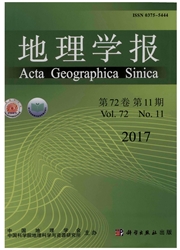

 中文摘要:
中文摘要:
经济地理学是一门研究真实世界的学科,在社会实践中发挥着重要作用。满足国家和社会的需求,是这个学科发展的生命力所在。针对当前全面深化改革的新形势以及“未来地球”计划的提出,本文倡导开展面向空间治理的经济地理学研究,提高该学科服务于国家战略决策的能力。之后本文阐述了中国空间治理的政治文化基础;分析了中国空间治理的主要手段,包括规划体制、土地制度、户籍制度和财税体制。本文认为,只有客观、全面地观察中国的空间治理体系,并将其理论知识化,才能使经济地理学研究具有更大的科学价值和实践意义,也才能为国家提高空间治理能力提供科学支撑。
 英文摘要:
英文摘要:
Economic geography is a discipline that studies geographical practices in the real world and plays an important role in supporting the state's strategic decision-making on spatial development and helping to understand spatial issues and solutions in contemporary society. Thus, the discipline's vitality lies with its capability to satisfy the demands of the state and society. At present, the development of economic geography in China is facing two critical challenges or opportunities. First, the Communist Party of China, the ruling party, lists modernization and enhancement of national governance capability as a major target of deepening reforms in China, which indicates reforms in the country are moving from target- oriented (i.e., crossing the river by feeling the stones) to institutional building and capability enhancement. Second, recently the International Council for Science and the International Social Science Council co-launched a large scientific program, i.e. the Future Earth, which calls for inter-disciplinary research for managing the Earth's environment and moving towards sustainable development, and China has established its national committee on Future Earth. The program emphasizes the connection of research to decision-making of both the state and society. Against these two opportunities, this paper suggests an economic geography for spatial governance to lift the discipline's capability to engage with the state and society. Then the paper gives a general discussion of the political, administrative and cultural basis on which China's unique governance structure has developed, as well as a general picture of major tools that the Chinese government has taken for spatial governance, including planning, land, Hukou, and fiscal and tax systems. This paper argues economic geographers can do a better job only if they have a better understanding and theorization of China's national governance structure although they were inclined to do research either at local and global scales or global-lo
 同期刊论文项目
同期刊论文项目
 同项目期刊论文
同项目期刊论文
 期刊信息
期刊信息
